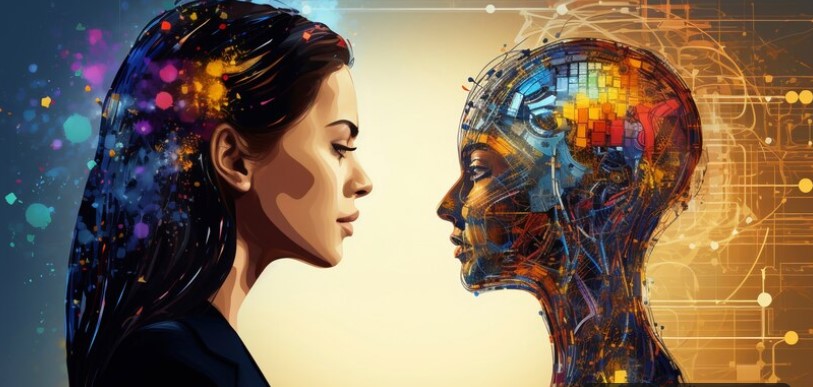Experts feel that the rise of artificial intelligence will improve most people’s lives in the next decade. Nevertheless, many people have concerns about how advances in AI technology will affect human lives. The purpose of this post is to help you know the effect of this technology on the lives of people:
The Assurance of Artificial Intelligence
Artificial Intelligence Technology has the potential to solve complex issues that were thought to be insoluble. For instance, when you take the case of the healthcare domain, AI-powered algorithms can evaluate huge datasets to spot patterns. As a result, this technology enables early spotting of diseases like cancer. In the same way, in the education sector, artificial intelligence can customise learning experiences. It means that the technology can cater to the unique requirements of every student. These improvements ensure an improved quality of life, thereby improving productivity and unlocking fresh opportunities for invention.
Workforce and Automation
One of the most discussed effects of artificial intelligence is its effect on the job market. Automation created by this technology affects the job market. The automation created by artificial intelligence is bound to replace mundane and repetitive tasks. As a result, humans can focus on more strategic and creative works. Nevertheless, this move comes with challenges as well.
Many jobs, particularly, in administrative and manufacturing domains, may become outdated. As a result, this technology raises concerns about income inequality and unemployment. To handle these effects, reskilling and upskilling programs will be crucial to equip workers with the capabilities required for emerging roles.
Ethical Considerations
AI systems these days are becoming more sophisticated. So, ethical queries that surround their use gain importance. Issues like bias in algorithms, data privacy and potential misuse of AI for warfare or surveillance pose considerable challenges. Making sure that artificial intelligence development stays in line with human values and protects individual rights is important for the future, in which technology serves humanity against exploiting it.
AI and Human Creativity
As against the fears that Artificial Intelligence might overshadow human creativity, it is showing considerable potential to improve it. AI Tools like ChatGPT and Dall-E permit musicians, writers and artists to push the boundaries of their imagination by providing them with fresh ideas and perspectives. AI can automate mundane aspects of creative work. As a result, the technology can focus on higher-order innovation and thinking.
The Future of Coexistence
For humans to thrive along with Artificial Intelligence, it is important to establish a symbiotic relationship. This involves designing AI systems that stay in line with human abilities as against competing with them. Collaborative robots in domains like manufacturing exemplify the idea of helping workers as against replacing them.
Above all, fostering accountability and transparency in artificial intelligence will be important. Developers, organizations and governments must work together to establish ethical guidelines and regulations that ensure that AI is used responsibly.
